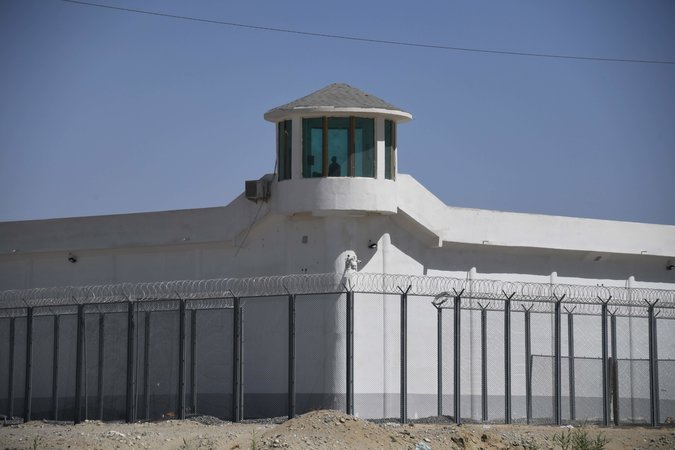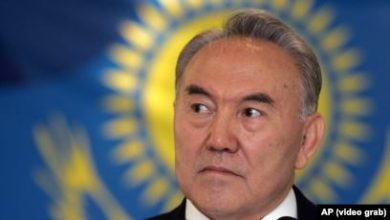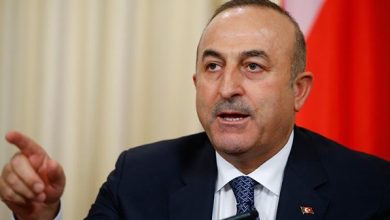
HONG KONG — The students booked their tickets home at the end of the semester, hoping for a relaxing break after exams and a summer of happy reunions with family in China’s far west.
Instead, they would soon be told that their parents were gone, relatives had vanished and neighbors were missing — all of them locked up in an expanding network of detention camps built to hold Muslim ethnic minorities.
The authorities in the Xinjiang region worried the situation was a powder keg. And so they prepared.
The leadership distributed a classified directive advising local officials to corner returning students as soon as they arrived and keep them quiet. It included a chillingly bureaucratic guide for how to handle their anguished questions, beginning with the most obvious: Where is my family?
The directive was among 403 pages of internal documents that have been shared with The New York Times in one of the most significant leaks of government papers from inside China’s ruling Communist Party in decades. They provide an unprecedented inside view of the continuing clampdown in Xinjiang, in which the authorities have corralled as many as a million ethnic Uighurs, Kazakhs and others into internment camps and prisons over the past three years.
The party has rejected international criticism of the camps and described them as job-training centers that use mild methods to fight Islamic extremism. But the documents confirm the coercive nature of the crackdown in the words and orders of the very officials who conceived and orchestrated it.
Even as the government presented its efforts in Xinjiang to the public as benevolent and unexceptional, it discussed and organized a ruthless and extraordinary campaign in these internal communications. Senior party leaders are recorded ordering drastic and urgent action against extremist violence, including the mass detentions, and discussing the consequences with cool detachment.
Children saw their parents taken away, students wondered who would pay their tuition and crops could not be planted or harvested for lack of manpower, the reports noted. Yet officials were directed to tell people who complained to be grateful for the Communist Party’s help and stay quiet.
The leaked papers offer a striking picture of how the hidden machinery of the Chinese state carried out the country’s most far-reaching internment campaign since the Mao era. The key disclosures in the documents include:
• President Xi Jinping, the party chief, laid the groundwork for the crackdown in a series of speeches delivered in private to officials during and after a visit to Xinjiang in April 2014, just weeks after Uighur militants stabbed more than 150 people at a train station, killing 31. Mr. Xi called for an all-out “struggle against terrorism, infiltration and separatism” using the “organs of dictatorship,” and showing “absolutely no mercy.”
• Terrorist attacks abroad and the drawdown of American troops in Afghanistan heightened the leadership’s fears and helped shape the crackdown. Officials argued that attacks in Britain resulted from policies that put “human rights above security,” and Mr. Xi urged the party to emulate aspects of America’s “war on terror” after the Sept. 11 attacks.
• The internment camps in Xinjiang expanded rapidly after the appointment in August 2016 of Chen Quanguo, a zealous new party boss for the region. He distributed Mr. Xi’s speeches to justify the campaign and exhorted officials to “round up everyone who should be rounded up.”
• The crackdown encountered doubts and resistance from local officials who feared it would exacerbate ethnic tensions and stifle economic growth. Mr. Chen responded by purging officials suspected of standing in his way, including one county leader who was jailed after quietly releasing thousands of inmates from the camps.
The leaked papers consist of 24 documents, some of which contain duplicated material. They include nearly 200 pages of internal speeches by Mr. Xi and other leaders, and more than 150 pages of directives and reports on the surveillance and control of the Uighur population in Xinjiang. There are also references to plans to extend restrictions on Islam to other parts of China.
Though it is unclear how the documents were gathered and selected, the leak suggests greater discontent inside the party apparatus over the crackdown than previously known. The papers were brought to light by a member of the Chinese political establishment who requested anonymity and expressed hope that their disclosure would prevent party leaders, including Mr. Xi, from escaping culpability for the mass detentions.
The Chinese leadership wraps policymaking in secrecy, especially when it comes to Xinjiang, a resource-rich territory located on the sensitive frontier with Pakistan, Afghanistan and Central Asia. Predominantly Muslim ethnic minority groups make up more than half the region’s population of 25 million. The largest of these groups are the Uighurs, who speak a Turkic language and have long faced discrimination and restrictions on cultural and religious activities.
Beijing has sought for decades to suppress Uighur resistance to Chinese rule in Xinjiang. The current crackdown began after a surge of antigovernment and anti-Chinese violence, including ethnic riots in 2009 in Urumqi, the regional capital, and a May 2014 attack on an outdoor market that killed 39 people just days before Mr. Xi convened a leadership conference in Beijing to set a new policy course for Xinjiang.
Since 2017, the authorities in Xinjiang have detained many hundreds of thousands of Uighurs, Kazakhs and other Muslims in internment camps. Inmates undergo months or years of indoctrination and interrogation aimed at transforming them into secular and loyal supporters of the party.
Of the 24 documents, the directive on how to handle minority students returning home to Xinjiang in the summer of 2017 offers the most detailed discussion of the indoctrination camps — and the clearest illustration of the regimented way the party told the public one story while mobilizing around a much harsher narrative internally.
Even as the document advises officials to inform students that their relatives are receiving “treatment” for exposure to radical Islam, its title refers to family members who are being “dealt with,” or chuzhi, a euphemism used in party documents to mean punishment.
Officials in Turpan, a city in eastern Xinjiang, drafted the question-and-answer script after the regional government warned local officials to prepare for the returning students. The agency coordinating efforts to “maintain stability” across Xinjiang then distributed the guide across the region and urged officials to use it as a model.
The government sends Xinjiang’s brightest young Uighurs to universities across China, with the goal of training a new generation of Uighur civil servants and teachers loyal to the party.
The crackdown has been so extensive that it affected even these elite students, the directive shows. And that made the authorities nervous.
“Returning students from other parts of China have widespread social ties across the entire country,” the directive noted. “The moment they issue incorrect opinions on WeChat, Weibo and other social media platforms, the impact is widespread and difficult to eradicate.”
The authorities anticipated, however, that this was unlikely to mollify students and provided replies to a series of other questions: When will my relatives be released? If this is for training, why can’t they come home? Can they request a leave? How will I afford school if my parents are studying and there is no one to work on the farm?
The guide recommended increasingly firm replies telling the students that their relatives had been “infected” by the “virus” of Islamic radicalism and must be quarantined and cured. Even grandparents and family members who seemed too old to carry out violence could not be spared, officials were directed to say.
“If they don’t undergo study and training, they’ll never thoroughly and fully understand the dangers of religious extremism,” one answer said, citing the civil war in Syria and the rise of the Islamic State. “No matter what age, anyone who has been infected by religious extremism must undergo study.”
Students should be grateful that the authorities had taken their relatives away, the document said.
“Treasure this chance for free education that the party and government has provided to thoroughly eradicate erroneous thinking, and also learn Chinese and job skills,” one answer said. “This offers a great foundation for a happy life for your family.”
The authorities appear to be using a scoring system to determine who can be released from the camps: The document instructed officials to tell the students that their behavior could hurt their relatives’ scores, and to assess the daily behavior of the students and record their attendance at training sessions, meetings and other activities.







